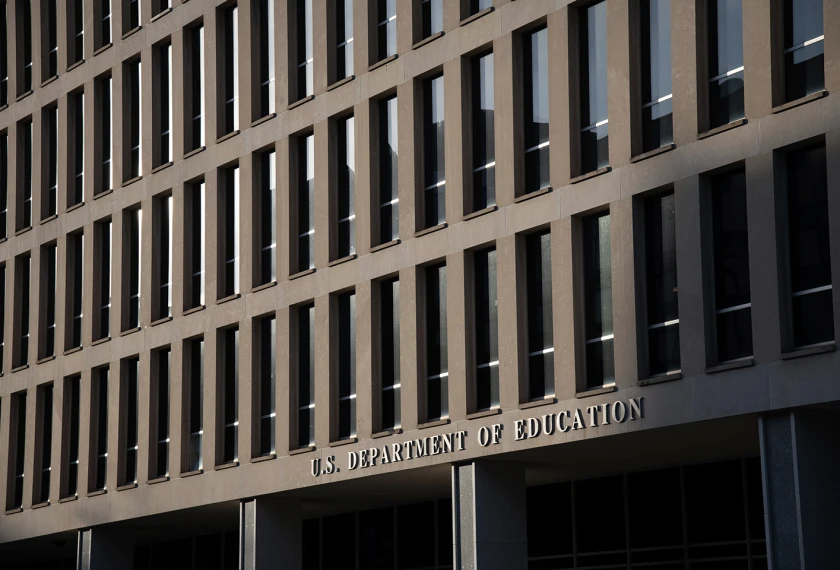
Courtesy: Graeme Sloan of Associated Press
President Donald Trump’s executive order to dismantle the U.S. Department of Education has triggered swift legal backlash from multiple advocacy groups and educators, as well as raised serious questions about the future of federal oversight in American education.
Signed on March 20, the order directs Secretary of Education, Linda McMahon, to begin dismantling the agency and transferring its responsibilities to other federal agencies and state authorities, while explicitly barring the use of remaining department funds to support DEI initiatives. Two separate lawsuits were filed on March 24, challenging the Trump Administration’s authority to eliminate the Department of Education.
The National Education Association, the NAACP, and several other public education advocacy groups argued in their lawsuit that Trump’s directive exceeds presidential authority and violates the Administrative Procedure Act, an act that governs the procedures of administrative law.
The lawsuit also asserts that dismantling the Department of Education would inflict lasting harm on schools, students and even communities.
“[T]he Constitution gives power over ‘the establishment of offices [and] determination of their functions and jurisdiction’ to Congress—not to the President,” the lawsuit states.
A second lawsuit, filed by the American Federation of Teachers and various public school districts, demands a court order to block implementation of Trump’s executive order. Both cases raise concerns that dismantling the Department of Education could jeopardize key protections and resources for millions of students, especially those in underserved communities.
While short-term changes may be limited, the long-term implications are unclear. The Department of Education plays a critical financial and regulatory role in the education sector. It distributes billions of dollars annually in federal funding, especially to support students with disabilities, low-income communities, and those who are learning English as a second language.
Without this funding, states would gain much wider discretion in how federal funds are used, raising fears among critics that the money could be redirected away from public schools and into private vouchers or ideological programs.
Federal funding makes up about 14 percent of school budgets nationwide, but accounts for more than 20 percent in states like Mississippi and Alaska. Advocates worry that eliminating federal oversight could deepen educational inequities, particularly in rural and under-resourced districts.
The Trump Administration argues that the Department of Education has failed to improve student performance despite massive spending. Secretary McMahon has already slashed the agency’s staff by half. Meanwhile, student loans are set to be transferred to the Small Business Administration, which has raised concerns over the future of FAFSA, loan forgiveness, and financial aid distribution.
Still, dismantling the Department of Education entirely would require congressional action. While Republicans are expected to push this legislation, Democrats and education groups are gearing up for a fierce fight. For now, the battle over the future of American education is just beginning – and likely headed to the courts.